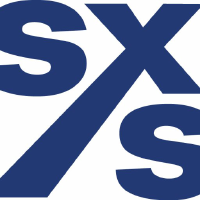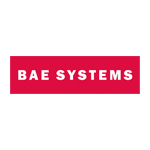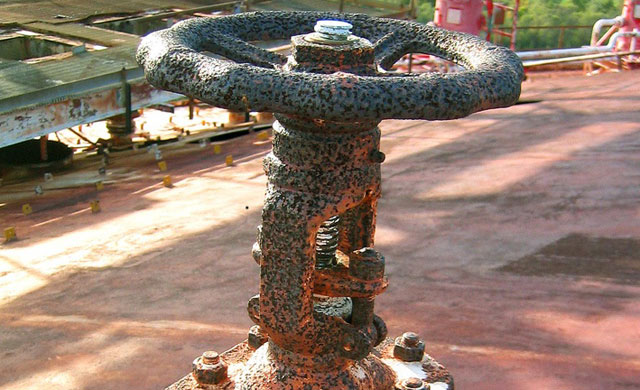London open: Stocks steady as investors mull UK house prices, French politics

London stocks were flat in early trade on Monday as investors mulled a jump in UK house prices, encouraging Chinese manufacturing data and political instability in France.
At 0830 GMT, the FTSE 100 was steady at 8,282.78.
Richard Hunter, head of markets at Interactive Investor, said: “The FTSE 100 hobbled around the flatline in opening exchanges, and its inability to break out of what has been a tight trading range in recent months leaves the index ahead by 7% so far this year.
“While this is a decent performance in terms of total return (the average dividend yield within the index is currently 3.6%, lifting the gain to double figures), the inevitable comparison to US markets in particular leaves the index trailing in the wake of an especially growth-driven market.”
Data released earlier by Nationwide showed that house prices rose 3.7% on the year November, up from 2.4% the month before. This marked the fastest annual growth since November 2022.
On the month, they were up 1.2%, having risen just 0.1% in October. This was the largest monthly gain since March 2022.
Nationwide chief economist Robert Gardner said: “House prices are just 1% below the all-time high recorded in the summer of 2022.
“The acceleration in house price growth is surprising, since affordability remains stretched by historic standards, with house prices still high relative to average incomes and interest rates well above pre-Covid levels.
“The pickup in price growth is unlikely to have been driven by upcoming stamp duty changes, since the majority of mortgage applications commenced before the Budget announcement.
“Housing market activity has remained relatively resilient in recent months, with the number of mortgage approvals approaching the levels seen pre-pandemic, despite the higher interest rate environment.
“Solid labour market conditions, with low levels of unemployment and strong income gains, even after taking account of inflation, have helped underpin a steady rise in activity and house prices since the start of the year. Household balance sheets are also in good shape with debt levels at their lowest levels relative to household income since the mid-2000s.”
Investors were also mulling the latest Confederation of British Industry Growth Indicator, which showed that companies expect 2025 to get off to a poor start, weighed down by rising labour costs and weak sentiment.
According to indicator, private sector firms expect activity to fall in the three months to February 2025, with a weighted balance of -10. It is the first time this year growth expectations have been negative.
Overall business volumes were forecast to ease, with a balance of -13. Business and professional services firms expected a more modest fall than those in consumer services, however, with contrasting balances of -7 and -33 respectively.
Away from services, and distribution sales were also expected to decline, with a balance of -20. But manufacturers were optimistic output would rise, albeit modestly, with a balance of 9.
The CBI said October’s Budget had hit sentiment across the private sector.
Alpesh Paleja, interim deputy chief economist at the CBI, said: “As we head into 2025, expectations for growth have taken a decisive turn for the worse.
“Anticipated activity was already weakening heading into the Budget, and the chancellor’s announcements have left businesses with even more tough choices to make.
“News that firms are planning to reduce headcount is a concern, with hiring intentions at their weakest since the tail-end of the pandemic. This could be an early sign of the impact of the higher labour costs from the upcoming rise in employer National Insurance Contributions, and the uprating in the National Living Wage.”
Hiring intentions were at their weakest since January 2021, the CBI noted, with headcounts likely to be trimmed in the three months to February.
Away from home, the latest data from Caixin and S&P Global showed that China’s manufacturing sector grew at its fastest rate in five months in November.
The manufacturing PMI rose to 51.5 from 50.3 in October, coming in ahead of the 50.5 consensus forecast.
This was the second straight month of expansion, helped by the highest rate of growth in foreign orders since February 2023.
Market participants were also keeping an eye on political developments in France, amid the threat of government collapse.
Kathleen Brooks, research director at XTB, said: “On Sunday, Marine Le Pen said that her party’s talks with the government led by Michel Barnier, had broken down, which paves the way for a no-confidence vote in the technocratic government that has no majority in Parliament. The no-confidence vote could come as early as Wednesday.
“If Barnier loses this vote, and at this stage it is very hard to see how he could win the vote, then European political woes could be front and centre as we move towards 2025. An election is expected to take place in Germany in February, however there cannot be another election in France until July next year, which opens the door to months of political struggle and inertia as the country tries to deal with its budget deficit, which is more than 6% of GDP.”
In equity markets, housebuilders Persimmon and Vistry were both under the cosh after downgrades to ‘underperform’ from ‘sector perform’ at RBC Capital Markets.
As far Persimmon is concerned, RBC said third-quarter commentary on build costs and building regulation planning changes lead it to believe that the embedded margins in its landbank may be at risk of downgrades come the full-year results.
“It has invested in build and quality, but housebuilding is not a zero-sum game, and lower margins may lead to a lower premium for Persimmon in 2025,” it said.
It noted that Vistry has issued two profit warnings in as many months. “Whilst we are not saying things necessarily come in threes we believe that whilst provisions and cost calculations remain unaudited there are risks to the downside,” RBC said.
“In addition, with many of its peers trading below book value we believe that the risk/reward trade-off has not moved in Vistry’s favour.”
Taylor Wimpey also fell even as RBC retained its ‘outperform’ rating on the stock, saying it continues to believe it’s is one of the UK’s best placed housebuilders to take advantage of planning reform.
BAE Systems was a little firmer as Citi reiterated its ‘buy’ recommendation on the shares after they slumped on Friday on the back of a downgrade by Bank of America Merrill Lynch.
Top 10 FTSE 100 Risers
| Sponsored by Plus500 |
|
| # | Name | Change Pct | Change | Cur Price | |
|---|---|---|---|---|---|
| 1 |  |
Spirax Group Plc | +1.81% | +130.00 | 7,300.00 |
| 2 |  |
Wise Plc | +1.19% | +10.50 | 892.50 |
| 3 |  |
Bt Group Plc | +1.07% | +1.70 | 161.00 |
| 4 |  |
Melrose Industries Plc | +0.94% | +5.40 | 579.80 |
| 5 |  |
Anglo American Plc | +0.93% | +23.50 | 2,544.00 |
| 6 |  |
Centrica Plc | +0.82% | +1.05 | 128.45 |
| 7 |  |
Bae Systems Plc | +0.69% | +8.50 | 1,235.50 |
| 8 |  |
Associated British Foods Plc | +0.68% | +15.00 | 2,213.00 |
| 9 |  |
Pershing Square Holdings Ltd | +0.64% | +24.00 | 3,786.00 |
| 10 |  |
Rentokil Initial Plc | +0.63% | +2.50 | 396.30 |
Top 10 FTSE 100 Fallers
| Sponsored by Plus500 |
|
| # | Name | Change Pct | Change | Cur Price | |
|---|---|---|---|---|---|
| 1 |  |
Gresham House Renewable Energy Vct 1 Plc | -22.22% | -10.00 | 35.00 |
| 2 |  |
Banco Santander S.a. | -1.37% | -5.00 | 359.50 |
| 3 |  |
Intertek Group Plc | -1.10% | -52.00 | 4,664.00 |
| 4 |  |
Aviva Plc | -0.56% | -2.70 | 481.00 |
| 5 |  |
Lloyds Banking Group Plc | -0.49% | -0.26 | 52.80 |
| 6 |  |
Segro Plc | -0.46% | -3.60 | 776.40 |
| 7 |  |
Smurfit Westrock Plc | -0.44% | -19.00 | 4,305.00 |
| 8 |  |
Antofagasta Plc | -0.41% | -7.00 | 1,695.50 |
| 9 |  |
Barclays | -0.40% | -1.05 | 262.75 |
| 10 |  |
Auto Trader Group Plc | -0.38% | -3.20 | 835.80 |
US close: Dow, S&P 500 hit new highs in low-volume, shortened session
US stocks rose on Friday with the Dow and S&P 500 both setting new record highs with trading volumes low in a shortened trading session.
Despite the closing bell ringing early on account of Black Friday – trading on the New York Stock Exchange finished at 1300 ET – the Dow finished 0.4% higher at 44,910.65, while the S&P rose 0.6% to 6,032.38.
The Nasdaq, meanwhile, gained 0.8% to 19,218.17 as the tech-heavy index closes in on all-time highs made two weeks ago.
The positive finish capped a strong November for US stocks, with the Dow in particular putting in its strongest monthly performance of the year (+7.5%).
“US exchanges were closed for the holiday and have a shortened session today, so markets should be quite thin and volumes low. Despite this, investor sentiment remains positive as far as equities are concerned, and the ongoing pullback in bond yields is providing a welcome tailwind,” said David Morrison, senior market analyst at Trade Nation.
The 10-year US Treasury yield dropped 8.9 basis points to 4.175% on Friday, continuing its decline after hitting a four-month high of 4.45% two weeks ago. Yields had been surging since slumping to a multi-year low of 3.6% in mid-September.
“These yield swings demonstrate investor uncertainty over future interest rate moves. While the US economic growth outlook remains positive, the decline in inflation appears to be stalling,” Morrison said.
Market movers
Stocks in the semiconductor equipment sector were all rising on Friday after Bloomberg reported that sanctions being considered by the Biden administration on semiconductor equipment and AI memory chip sales to China were less severe than expected.
US-listed shares of Dutch group ASML gained, along with Applied Materials, Lam Research and KLA Corporation.
Auto parts group Advance Auto Parts fell sharply after ratings agency Moody’s cut its debt rating to junk due to expectations of “continued very high lease-adjusted leverage, weak interest coverage, and negative free cash flow over the next 12-18 months”.
Share prices in the retail sector were rising as Black Friday shopping began, with Target, Walmart, Costco, Kohl’s and Dollar General finishing higher.
Monday newspaper round-up: Zuber Issa, Thames Water, BAE Systems
There is “no route to net zero” that ignores the real concerns of businesses, a cabinet minister has warned, as the government prepares to reduce financial penalties handed to carmakers not selling enough electric cars. Ministers are also looking at how cheaper loans could be introduced to help people buy an electric vehicle (EV), after a wave of job losses and closures in which carmakers blamed the onerous fines they were facing. – Guardian
Fears of a global trade war have risen after Donald Trump threatened to impose 100% tariffs on countries in the Brics group if they create a new currency to rival the US dollar. Writing on his social media platform, Truth Social, on Saturday, Trump declared that he would also act if they supported another currency to replace the dollar. – Guardian
The billionaire former co-owner of Asda is on the verge of striking his first deal since breaking up the business empire built with his brother. Zuber Issa has lined up financing to pursue a deal for Petrogas Group, the UK arm of Irish forecourt giant Applegreen. It would mark Mr Issa’s first takeover since his decision to carve up EG Group, the petrol forecourt empire that he ran alongside his brother Mohsin for 20 years. – Telegraph
The boss of Stellantis has resigned after overseeing a sharp drop in car sales, as the Vauxhall owner struggles with the shift to electric vehicles. Carlos Tavares stepped down from his role as chief executive of the world’s fourth-largest carmaker on Sunday, with his departure accelerated following a split with the board. – Telegraph
The water regulator has blamed Moody’s, the credit rating agency, for stoking the industry’s financial crisis by not calling out operators such as Thames Water when they took on unsustainable debt. Ofwat has reproached Moody’s for certifying Thames Water’s debt as investment grade until recently, despite evidence of a fall in shareholder support and the group’s poor performance over a long period. – The Times
Britain’s largest defence company will take on a record number of apprentices and graduates by next year. BAE Systems, which builds the nation’s nuclear submarines and fighter jets, plans to recruit more than 2,400 apprentices, undergraduates and graduates. Some 6,500 trainees will work for the FTSE 100 group, 15 per cent of its UK workforce. – The Times


 Hot Features
Hot Features














